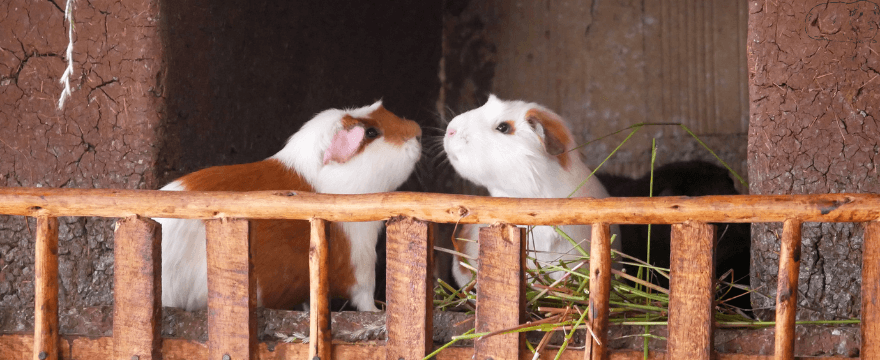Have you ever thought about whether guinea pigs cry? Those cute little animals with curious squeaks and silly moves—do they cry tears of happiness or sadness like we do? When I first brought Peanut home, I was interested in this question.
Imagine yourself sitting and having a peaceful moment with your guinea pig. Your mind starts to wonder, “Is Peanut trying to tell me something?” as Peanut lets out a series of high-pitched squeaks. Could these be tears of some kind?”
In this article, we explore guinea pigs’ emotions to understand their vocalizations and behaviors. We’ll talk about whether guinea pigs really cry, how they show how they feel, and what you can do to make sure your pet friend is happy and healthy.
Understanding Guinea Pig Communication
Speaking and moving their bodies are the main ways that guinea pigs interact. Their vocal repertoire includes chirps, purrs, and the well-known “squeak” when aroused or hungry. These sounds are needed to show happiness, excitement, sadness, and other feelings.
Another vital way guinea pigs talk is through their bodies. The way they move their ears, stand and make facial reactions show how they’re feeling. Flattened ears and a hunched posture, for instance, can be signs of fear or discomfort, while perked ears and carefree brushing can be signs of happiness.
Do Guinea Pigs Cry Tears?
Guinea pigs don’t cry tears like people think they do, despite what most people believe. They don’t have tear ducts, which is something many other small animals also lack. However, they do have ways of vocalizing and body language showing that they are upset or uncomfortable.
When guinea pigs are upset or hurt, they might make high-pitched squeaks or frequent buzzing noises. They use these sounds to let their owners or other animals in the cage know how they’re feeling. Guinea pigs need to be able to make these sounds to express their needs, even though they are not tears.
How do you know if your guinea pig is sad?
Guinea pigs are sensitive animals that are affected by their surroundings and the people they meet. When guinea pigs are sad or upset, these things may happen:
- Behavior Change: Staying hidden or not wanting to come out of secret places more.
- Loss of Appetite: Not wanting to eat or drink as much.
- Strange Voices: Whining or singing continuously, which is not their normal sound.
- Lack of Activity: Moving around less or not wanting to do normal things.
How to Respond Emotionally and Give Care
Guinea pigs are naturally sensitive animals that are affected by their surroundings and the people they meet. Sudden loud noises, sudden movements, or changes in routine can affect their mental health. Knowing these causes can help stop behaviors that are caused by stress and make the home a more peaceful place to live.
To help your guinea pig’s mental health:
- Give them a large, well-rounded environment with places to hide, chew toys, and tunnels to explore.
- Set up regular times to feed, handle, and play with your pet to help them feel safe.
- Let them pet you gently and soothingly talk to them to build trust and safety.
It is very important to watch how your guinea pig acts. Some signs of stress are hiding a lot, losing your food, or being mean to other animals in the cage. If you see these habits, you should talk to a small animal veterinarian about how to make their lives better.
Concluding Remarks
Guinea pigs don’t cry tears like people do, but they can converse well through sounds and body language. Understanding these ways of expressing yourself is essential if you want to give your pet good care and build a strong bond with them. You can make sure your guinea pig has a happy and rewarding life as a beloved pet by giving it a safe and caring home and paying attention to its needs.
Knowing how guinea pigs feel makes having a pet more fun, and every squeak and waggle of their whiskers makes your life and theirs better.

Leave a Reply